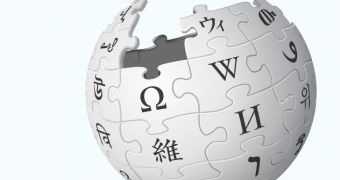One of the criticisms against Wikipedia, from the people that still criticize Wikipedia, is that it's accuracy can't be as good as that of more traditional sources, specifically encyclopedias. It seems true at first glance, after all, Wikipedia is created and edited by volunteer contributors who may or may not be experts on what they're writing about.
But that's Wikipedia's greatest strength as well, while an encyclopedia relies on the knowledge of just one or two people for an article, Wikipedia relies on tens, hundreds, even thousands. The truth usually comes out and obvious errors are quickly rooted out, at least for popular articles.
Unsurprisingly, that's pretty much what an independent study of the accuracy of Wikipedia studies found. First the caveats, the study was commissioned by Wikimedia, the foundation behind Wikipedia, and it focused on 222 articles, a paltry selection.
But it did find that all of the articles on Wikipedia fared better than the similar ones in traditional encyclopedias. The study sampled several articles in English, Spanish and Arabian. The articles were reviewed by academic experts on the topics in each of the languages.
The English language articles were pitted against ones in Encyclopaedia Britannica. The study found that the Wikipedia articles fared better in terms of accuracy, references and overall judgement. In terms of style and overall quality, the two sources were an equal match.
"Similar results were found when comparing Wikipedia articles in Spanish to Enciclonet. In Arabic, Mawsoah and Arab Encyclopaedia articles scored higher on style than Wikipedia, but no significant differences were found on accuracy, references, overall judgment and overall quality score," Wikimedia wrote.
Granted, this in no way is an indication of the overall quality of articles on Wikipedia, since there are some 23 million of them. At the same time, for the vast majority of articles, there wouldn't even be a way to compare them since they wouldn't have an equivalent in traditional encyclopedias.

 14 DAY TRIAL //
14 DAY TRIAL //